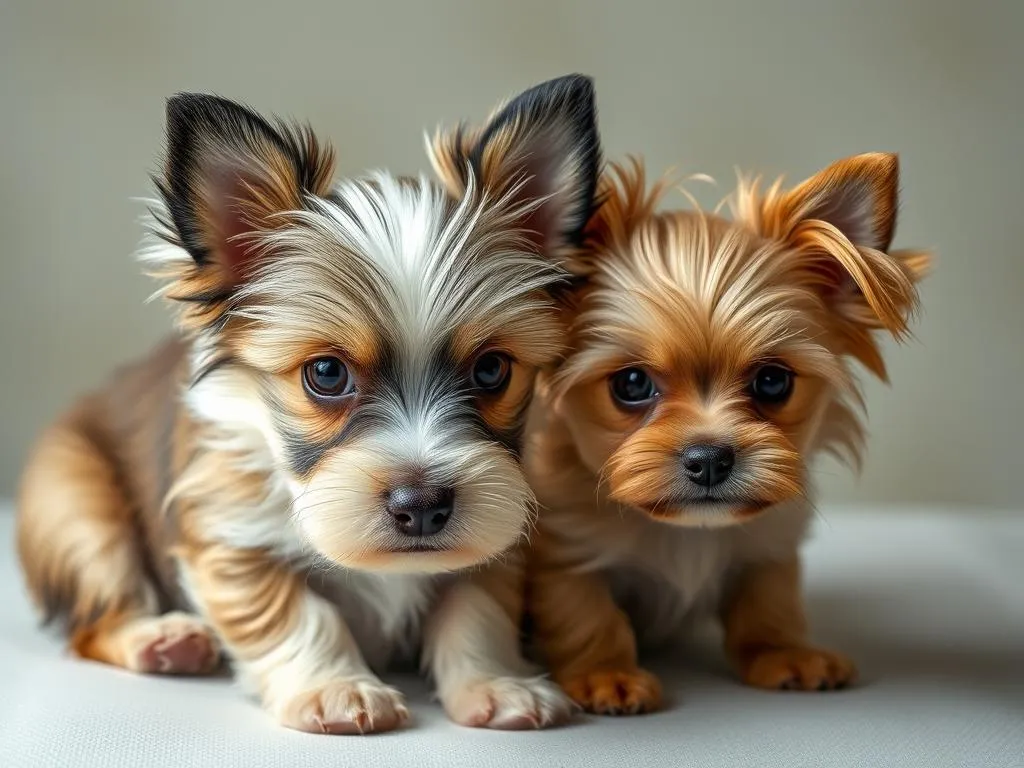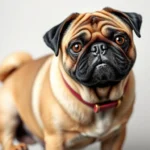
Introduction
Dog breeds have gained immense popularity over the years, with various sizes and temperaments catering to all kinds of pet lovers. Among these, teacup dogs have carved out a unique niche. These pint-sized pooches not only capture hearts with their adorable looks but also come with their own set of characteristics and responsibilities. Teacup dogs are defined by their minute size, making them particularly appealing to those who may not have the space or ability to care for larger breeds. Understanding teacup breeds is essential for potential owners, ensuring they make informed decisions about their new furry companions.
Understanding Teacup Dogs
What Are Teacup Dogs?
Teacup dogs are typically defined as small dog breeds that weigh significantly less than their standard counterparts. Generally, these breeds weigh between 2 to 5 pounds and stand about 6 to 9 inches tall. Their small size often leads to misunderstandings about their care and temperament. Many people mistakenly believe that all small dogs are low-maintenance or that they can be treated like toys. However, teacup dogs require specific care, attention, and nurturing just like any other breed.
History and Origin
The history of teacup breeds can be traced back through various small dog breeds that were selectively bred to achieve their diminutive size. Breeding practices often involved pairing the smallest dogs within a breed to produce even smaller offspring. This has resulted in popular breeds like the Chihuahua, Poodle, and Yorkshire Terrier being developed into “teacup” versions. These breeds originated in various parts of the world, each with its unique history and purpose, from companionship to pest control.
Popular Teacup Dog Breeds
Teacup Chihuahua
The teacup Chihuahua is one of the most recognized teacup breeds. Known for their sassy demeanor, these tiny dogs weigh around 2 to 6 pounds. They are often characterized by their large, expressive eyes and a wide variety of coat colors. Chihuahuas are known for being loyal and affectionate, often forming strong bonds with their owners.
Care Requirements: Teacup Chihuahuas require a balanced diet to maintain their weight and energy levels. They are prone to dental issues, so regular dental care is essential. These dogs thrive in warm environments and should be protected from cold weather due to their small size.
Teacup Poodle
The teacup Poodle is a smaller version of the standard Poodle, known for its intelligence and elegance. These dogs typically weigh around 4 to 6 pounds. They are highly trainable and excel in obedience and agility tasks. Their hypoallergenic coat requires regular grooming to prevent matting.
Grooming Needs: Regular brushing and professional grooming are necessary to maintain their beautiful coats. Teacup Poodles also benefit from daily exercise, though their small size means that short walks and indoor playtime are often sufficient.
Teacup Maltese
The teacup Maltese is another beloved breed, known for its long, silky white coat and playful personality. Weighing around 2 to 4 pounds, these dogs are affectionate and often enjoy being pampered. Maltese dogs make excellent companions for families and individuals alike.
Training Tips: Early socialization and training are crucial for Maltese dogs. They respond well to positive reinforcement techniques. Due to their small size, it’s important to supervise interactions with children and larger pets to ensure their safety.
Teacup Yorkshire Terrier
The teacup Yorkshire Terrier is a feisty little breed, known for its beautiful, flowing coat and confident attitude. Weighing around 4 to 7 pounds, Yorkies are often described as brave and spirited. They are excellent watchdogs despite their size.
Dietary Requirements: Feeding a teacup Yorkie high-quality dog food in small portions is essential. Due to their tiny stomachs, it is advisable to feed them several small meals throughout the day rather than one large meal.
Other Notable Teacup Breeds
In addition to the above breeds, there are several other teacup dogs worth mentioning:
- Teacup Dachshund: Known for their long bodies and short legs, these dogs enjoy companionship and require regular exercise.
- Teacup Shih Tzu: Friendly and outgoing, Shih Tzus are known for their distinct coats and affectionate nature.
Pros and Cons of Owning Teacup Dogs
Advantages
- Size and Portability: One of the biggest advantages of teacup dogs is their size, making them easy to carry and suitable for apartment living.
- Affectionate Nature: Teacup dogs are often known for their loyalty and affection towards their owners. They thrive on companionship and can be incredibly loving pets.
- Low Exercise Requirements: Many teacup breeds require minimal exercise, making them suitable for individuals with a less active lifestyle.
Disadvantages
- Fragility and Health Issues: Teacup dogs are prone to certain health issues, including dental problems and patellar luxation. Their small size makes them more fragile and susceptible to injuries.
- Special Care Needed: Teacup dogs often require more specialized care, including attention to their diet, health, and grooming.
- Challenges with Training: Training can be more challenging due to their stubbornness and small size. They may also develop small dog syndrome, where they exhibit dominant behaviors if not properly trained.
Care and Maintenance of Teacup Dogs
Feeding and Nutrition
Feeding a teacup dog requires careful consideration of their nutritional needs. High-quality dog food formulated for small breeds is recommended to provide the necessary nutrients.
- Portion Control: Due to their small size, portion control is essential to prevent obesity. Small meals throughout the day are often more beneficial.
- Feeding Schedule: Establishing a consistent feeding schedule can help maintain their routine and ensure adequate nutrition.
Health Care
Regular veterinary check-ups are crucial for teacup dogs. Common health issues include dental problems, heart conditions, and joint issues.
- Preventative Care Tips: Keeping up with vaccinations and regular health screenings can help identify potential issues early on. Additionally, dental care is critical, as small breeds are prone to periodontal disease.
Grooming Requirements
Grooming is an essential part of caring for teacup dogs, especially those with longer coats.
- Bathing and Brushing: Regular bathing and brushing help keep their coats clean and free of tangles. The frequency will depend on the breed and coat type.
- Nail Trimming and Dental Care: Regular nail trimming is necessary, as is dental care. Using dental chews and brushing their teeth can help maintain their oral health.
Exercise and Training
While teacup dogs may not require extensive exercise, they still need mental and physical stimulation.
- Exercise Routines: Short walks and play sessions can suffice for their exercise needs. Engaging them in interactive play can also provide mental stimulation.
- Training Techniques: Positive reinforcement is key when training teacup dogs. Socialization from an early age can help them develop good behavior and confidence.
Finding the Right Teacup Dog
Reputable Breeders vs. Pet Stores
When considering a teacup dog, it’s vital to find a reputable source. Responsible breeders prioritize the health and well-being of their dogs.
- Dangers of Puppy Mills: Avoid pet stores that source from puppy mills, as these facilities often prioritize profit over the health of the animals.
- Adoption Options: Consider adopting from shelters or rescue organizations. Many teacup breeds find themselves in need of loving homes.
What to Look for When Choosing a Teacup Dog
When selecting a teacup dog, assess their temperament and health.
- Questions to Ask Breeders: Inquire about the dog’s health history, temperament, and any potential health issues. Responsible breeders will provide transparency and support.
- Compatibility with Your Lifestyle: Consider your lifestyle and environment to ensure compatibility with the chosen breed.
Conclusion
Understanding teacup dogs involves recognizing their unique characteristics, care requirements, and potential challenges. While they can bring immense joy and companionship, they also require careful consideration and commitment. As with any pet, it’s crucial to research thoroughly and ensure that these tiny companions fit seamlessly into your life. Embracing the joys and responsibilities of caring for a teacup dog can lead to a fulfilling relationship that enriches both your life and theirs.









